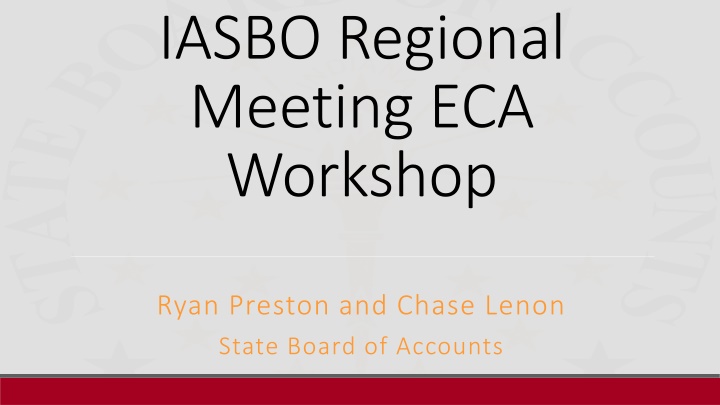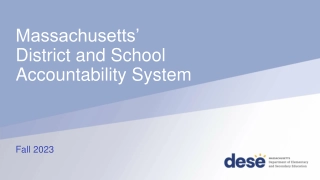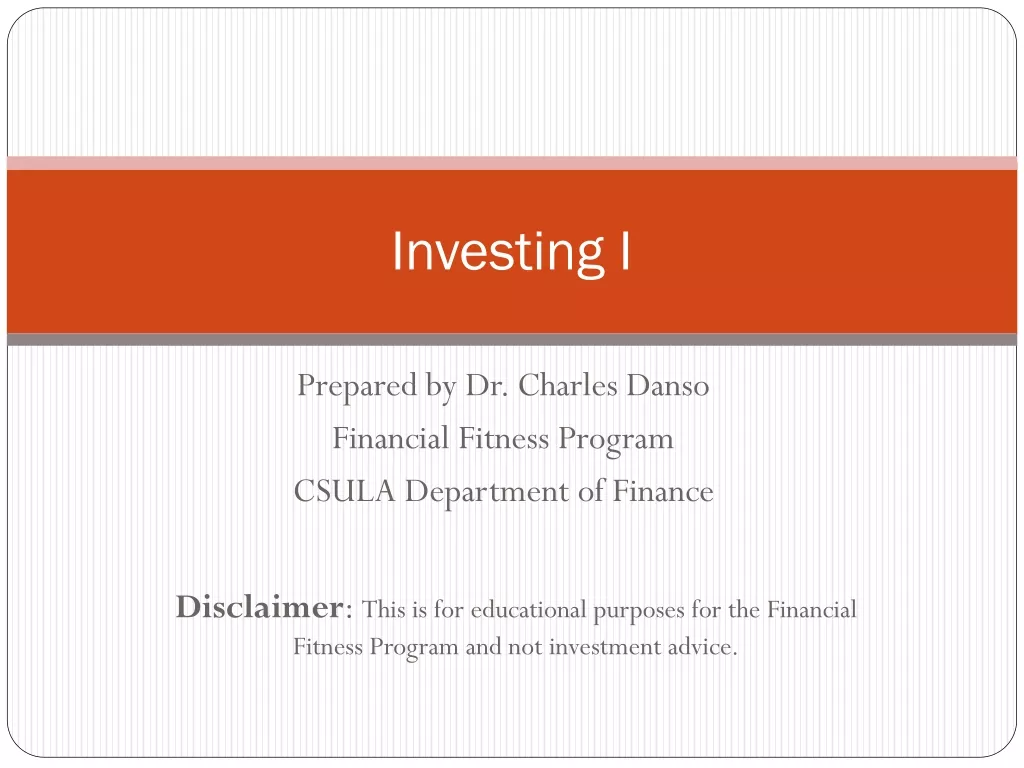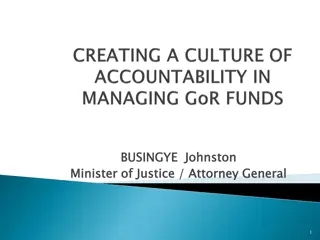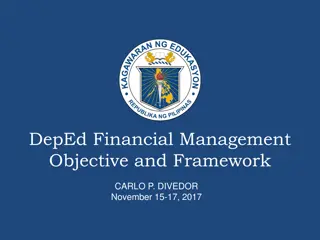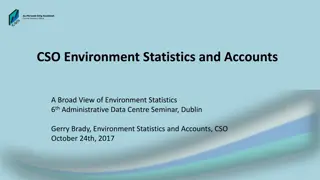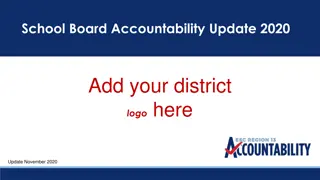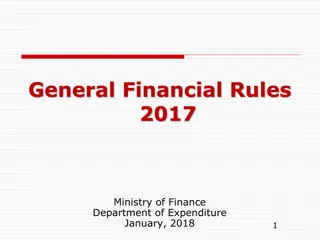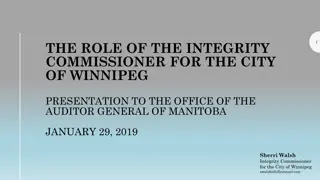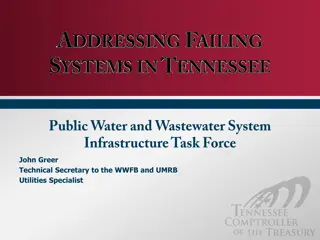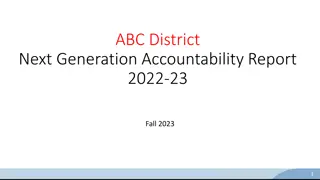State Board of Accounts - Financial Integrity and Accountability
State Board of Accounts in Indiana was established in 1909 to combat political corruption by ensuring financial integrity and accountability in state and local government. They conduct audits, provide training, and oversee various governmental units. The Board's mission is to instill confidence in the citizens of Indiana regarding the use of public funds.
Download Presentation

Please find below an Image/Link to download the presentation.
The content on the website is provided AS IS for your information and personal use only. It may not be sold, licensed, or shared on other websites without obtaining consent from the author.If you encounter any issues during the download, it is possible that the publisher has removed the file from their server.
You are allowed to download the files provided on this website for personal or commercial use, subject to the condition that they are used lawfully. All files are the property of their respective owners.
The content on the website is provided AS IS for your information and personal use only. It may not be sold, licensed, or shared on other websites without obtaining consent from the author.
E N D
Presentation Transcript
IASBO Regional Meeting ECA Workshop Ryan Preston and Chase Lenon State Board of Accounts
Contact Information Phone number (317) 232-2513 Address 302 W. Washington St., RM E418 Indianapolis, IN 46204-2765 Email schools.townships@sboa.in.gov Website www.in.gov/sboa State Board of Accounts 2018
STATE BOARD OF ACCOUNTS Created in 1909 in response to widespread political corruption Mission Statement We are dedicated to providing the citizens of the State of Indiana with complete confidence in the integrity and financial accountability of state and local government. Responsibilities Perform audit/exams of governmental units Prescribe forms and procedures used by governmental units Various other duties including recounts, providing training for local officials, consulting services, etc. State Board of Accounts 2018
STATE BOARD OF ACCOUNTS Organizational Flowchart SBOA Board (State Examiner, 2 Deputies) Directors (2 per area) Schools and Townships Cities/Towns and Special Districts Audit Coordinators Investigation Coordinators Audit Managers Field Examiners Counties State Board of Accounts 2018
SBOA WEBSITE RESOURCES Filed audit and examination reports Accounting Uniform Compliance Guidelines Manual for Extra-Curricular Accounts Accounting Uniform Compliance Guidelines Manual for Indiana Public School Corporations Accounting Uniform Compliance Guidelines Manual for Indiana Charter Schools The School Bulletin The Charter School Bulletin State Board of Accounts 2018
IMPORTANT WEBSITES Indiana Public Access Counselor www.in.gov/pac Indiana Commission on Public Records www.in.gov/icpr Indiana Department of Revenue www.in.gov/dor Indiana Department of Education www.in.gov/doe Internal Revenue Service www.irs.gov State Board of Accounts 2018
CUSTODIAN RESPONSIBILITIES IC 20-41-1-3 states: (a) A person who has charge of the collection, custody, and disbursement of funds collected and expended to pay expenses incurred in conducting any athletic, social, or other school function, the cost of which is not paid from public funds, shall: (1) keep an accurate account of all money received and expended, showing the: (A) sources of all receipts; (B) purposes for which the money was expended; and (C) balance on hand; and school commissioners within two (2) weeks after the close of each school year. (2) file a copy of the account with the township trustee, board of school trustees, or board of (b) An account filed under subsection (a)(2) is a public record open to inspection by any interested person at any reasonable time during office hours. State Board of Accounts 2018
CUSTODIAN RESPONSIBILITIES ECA accounts may be used for athletic, social, class, or other school functions. ECA accounts may not be used for functions which are educational in nature, with the exception noted in Ch. 6, pg. 3. Accounts for educational functions must be maintained in the school corporation records. State Board of Accounts 2018
CUSTODIAN RESPONSIBILITIES ECA accounts may not be established for functions conducted by outside organizations, for example PTOs, Booster Clubs, Staff groups. If the faculty wishes to have a staff fund, then we recommend that each school s faculty group designate a person to control the money. A report of the ECA account (SA-5) must be submitted within two weeks after the close of the school year to the school board. This report is a public record open to inspection by any interested person at any reasonable time during office hours. State Board of Accounts 2018
EXTRA-CURRICULAR RISK REPORT GATEWAY APPLICATION State Board of Accounts 2018
RISK ASSESSMENT State Board of Accounts 2018
ANNUAL REPORTING State Board of Accounts 2018
ANNUAL REPORT CONT. State Board of Accounts 2018
ANNUAL REPORT CONT. State Board of Accounts 2018
SUBMISSION Submission Rights have been assigned to the fiscal officer of the school corporation because that is who is required to submit the Gateway Annual Report to the State Examiner. Edit Rights can be assigned to whomever the School Corporation wants to assign them. We suggest completing the ECA Delegation of Authority Form (http://www.in.gov/sboa/files/Gateway_ECA_Delegation_Form.pdf). You can complete the form, scan it, and email to gateway@sboa.in.gov. State Board of Accounts 2018
SUBMISSION What happens if the ECA Risk Report is not submitted via Gateway? SBOA will only recognize submission of the ECA Risk Reports through Gateway. SBOA will not accept the report in paper form or in any other format. If it is not submitted through Gateway, as prescribed, the extra-curricular account (ECA) will be considered high risk and the Department of Local Government Finance (DLGF) may not approve the budget of the school corporation in accordance with IC 5-11-1-4. After inputting information the ECA Treasurer will have the ability to produce and print the required SA-5 via the Report Output section. State Board of Accounts 2018
FORMS IC 20-41-1-4 states: (a) All forms and records for keeping the accounts of the extracurricular activities in school corporations shall be prescribed or approved by the state board of accounts. The records and affairs of the extracurricular activities may be examined by the state board of accounts when the state examiner determines an examination is necessary. The forms prescribed or approved for keeping these accounts must achieve a simplified system of bookkeeping and shall be paid for, along with the bond required in this chapter, from the general fund. (b) The funds of all accounts of any organization, class, or activity shall be accounted separately from all others. Funds may not be transferred from the accounts of any organization, class, or activity except by a majority vote of its members, if any, and by the approval of the principal, sponsor, and treasurer of the organization, class, or activity. However, in the case of athletic funds: (1) approval of the transfer must be made by the athletic director, who is regarded as the sponsor; and (2) participating students are not considered members. All expenditures of the funds are subject to review by the governing body of the school corporation. State Board of Accounts 2018
FORMS All ECA forms and records shall be prescribed or approved by the SBOA. As of April 1, 2014, there is a new form approval process detailed in the March 2014 School Administrator. The cost of prescribed or approved ECA records and the bond of the ECA treasurer shall be paid for from the General Fund of the School Corporation. ECA records shall be examined by SBOA as determined by the State Examiner. State Board of Accounts 2018
EXTRA-CURRICULAR ACCOUNT ENGAGEMENTS SBOA preliminary plan ECA with receipts greater than $1,000,000 will be examined during the school corporation audit by the assigned field examiners For 2016 Report 76 ECAs ECA with receipts between $1,000,000 - $100,000 will be examined by a centralized compliance process For 2016 Report 682 ECAs Will be done on a 4 year rotation coinciding with the School Corporation audit ECA with receipts less than $100,000 and not having a specific risk identified will have Centralized review process Approximately 10% of total statewide ECA activity State Board of Accounts 2018
TRANSFERS Funds may not be transferred from the accounts of any organization, class, or activity except by a majority vote of its members, if any, and by the approval of the principal, sponsor, and treasurer of the organization, class, or activity. Approval of the transfer of athletic funds must be made by the principal, treasurer, and the athletic director, who is regarded as the sponsor; participating students are not considered members. All expenditures of the funds are subject to review by the governing body of the school corporation. State Board of Accounts 2018
TREASURER BONDING REQUIREMENTS IC 20-41-1-6 states: (a) The treasurer shall give a bond in an amount fixed by the superintendent and principal of the school approximating the total amount of the anticipated funds that will come into the possession of the treasurer at any one (1) time during the regular school year. Bonds shall be filed with the trustee or board of school trustees. The surety on the bonds must be a surety company authorized to do business in Indiana. However, the requirement for giving the bond and the requirement to deposit the receipts in a separate bank account, as required in section 9 of this chapter, do not apply to any school for which the funds, as estimated by the principal, will not exceed three hundred dollars ($300) during a school year. (b) The requirements of this chapter may be fulfilled by providing a comprehensive bonding instrument, including a single blanket position bond, for all extracurricular treasurers. A comprehensive bonding instrument is acceptable instead of individual separate personal position bonds State Board of Accounts 2018
TREASURER BONDING REQUIREMENTS The treasurer shall give a bond in an amount fixed by the superintendent and principal of the school. If either school lunch funds or textbook rental funds are handled through an extra-curricular account, the governing body of the school corporation shall approve the amount of the bond of the treasurer (IC 20-41-2-6) The amount of the bond should approximate the total amount of the anticipated funds that will come into the possession of the treasurer at any one time during the regular school year. Bonds shall be filed with the trustee or board of school trustees. State Board of Accounts 2018
TREASURER BONDING REQUIREMENTS The bonding requirements may be fulfilled by providing a comprehensive bonding instrument, including a single blanket position bond, for all required individuals. A comprehensive bonding instrument is acceptable instead of individual separate personal position bonds. State Board of Accounts 2018
ADDITIONAL BONDING REQUIREMENTS P.L. 188-2016 HEA 1372 amended IC 20-26-4-5 effective July 1, 2016 to state: (a) For each school year commencing July 1: (1) the treasurer of each governing body and the governing body's school corporation; (2) a deputy treasurer, if so appointed; and (3) any individual whose official duties include receiving, processing, depositing, disbursing, or otherwise having access to funds: (A) that belong to a school corporation or the governing body of a school corporation; and (B) in an amount that exceeds five thousand dollars ($5,000) per year; shall give a bond for the faithful performance of the treasurer's, deputy treasurer's, or individual's duties written by an insurance company licensed to do business in Indiana, in an amount determined by the governing body. The treasurer shall be responsible under the treasurer's bond for the acts of a deputy treasurer appointed as provided in section 1 of this chapter. (b) A governing body may authorize the purchase of a blanket bond that: (1) is endorsed to include faithful performance to cover the faithful performance of all employees and individuals acting on behalf of the governing body or the governing body's school corporation, including the individuals described in subsection (a); and (2) includes aggregate coverage sufficient to provide coverage amounts specified for each individual who is required to give a bond under this section. State Board of Accounts 2018
ADDITIONAL BONDING REQUIREMENTS The governing body must determine who must be bonded under the statute. The term official duties is not defined. It is our position that official duties may include duties set forth in a job description, duties that are customary or routinely performed, or duties that are assigned but not frequently performed. For example, cafeteria cashiers, teachers who routinely collect lunch money from students, and employees who collect textbook rental fees must be bonded. The statute does not require the individual to be an employee of the school corporation. So, for example, parents volunteering in the school lunchroom or at an extracurricular sporting event must be bonded if their official volunteer duties include receiving public funds such as lunch money or admission fees assuming they will collect over the de minimis amount. There is a dollar threshold or de minimis exception in the statute. If an individual whose official duties include receiving, processing, depositing, disbursing, or otherwise having access to public funds are required to be bonded if the amount involving their duties exceeds $5,000 per year. For example, an athletic director and/or athletic secretary who handles tens of thousands of dollars per year is required to be bonded. However, a teacher who collects field trip money from her kindergarten class is not required to be bonded unless she will collect over $5,000 per year. State Board of Accounts 2018
RESPONSIBILITIES OF TREASURER IC 20-41-1-7 states: (a) The treasurer has charge of the custody and disbursement of any funds collected by a collecting authority and expended to pay expenses: (1) approved by the principal or teacher in charge of the school; (2) incurred in conducting any athletic, social, or other school function (other than functions conducted solely by any organization of parents and teachers); (3) that cost more than twenty-five dollars ($25) during the school year; and (4) that are not paid from public funds. (b) The principal or teacher in charge of the school shall designate a collecting authority to be in charge of the collection of any funds described in this section. Upon collection of any funds, the collecting authority shall deliver the funds, together with an accounting of the funds, to the custody of the school treasurer. The principal may designate different collecting authorities for each separate account of funds described in this section. State Board of Accounts 2018
RESPONSIBILITIES OF TREASURER The treasurer has charge of the custody and disbursement of any funds collected by a collecting authority and expended to pay expenses. The principal shall designate a collecting authority to be in charge of the collection of any funds. Upon collection of any funds, the collecting authority shall deliver the funds, together with an accounting of the funds, to the custody of the school treasurer. The principal may designate different collecting authorities for each separate account of funds. Functions conducted solely by any organization of parents and teachers shall not be accounted for in the ECA records. Therefore, activities and organizations which are not extra-curricular in nature should be responsible for their own accounting and cash handling systems. State Board of Accounts 2018
TREASURER DUTIES IC 20-41-1-8 states: (a) The treasurer shall keep an accurate account of all money received by the collecting authority and expended, showing: (1) the sources of all receipts; (2) the purposes for which the money was expended; and (3) the balance on hand. A copy of the report, together with all records and files of extracurricular activities, shall be filed as required under section 3 of this chapter. (b) However, in a school that has two (2) or more semesters in any one (1) school year, the treasurer of the school shall file a copy of the treasurer's financial report of receipts and disbursements with the township trustee, board of school trustees, or board of school commissioners not more than two (2) weeks after the close of each semester. Records and files of extracurricular activities for the entire school year shall be filed with the last financial semester report of any one (1) school year. (c) A copy of the report shall be filed with and kept by the city superintendent having jurisdiction and the county superintendent where the superintendent has jurisdiction. (d) The records under this section shall be kept for five (5) years, after which they may be destroyed. State Board of Accounts 2018
TREASURER DUTIES The treasurer shall keep an accurate account of all money received by the collecting authority and expended, showing: (1) the sources of all receipts; (2) the purposes for which the money was expended; and (3) the balance on hand. In a school that has two or more semesters in any one school year, the treasurer of the school shall file a copy of the treasurer's financial report of receipts and disbursements (SA5-1) with the board of school trustees not more than two weeks after the close of each semester. Records and files of extracurricular activities for the entire school year shall be filed with the last financial semester report of any one school year. State Board of Accounts 2018
DEPOSITS AND ACCOUNTS IC 20-41-1-9 states: (a) The treasurer shall deposit all receipts in one (1) bank account. The receipts shall be deposited without unreasonable delay. The account is known as the school extracurricular account. The records of each organization, class, or activity shall be kept separate so that the balance in each fund may be known at all times. (b) The money in the school extracurricular account may be invested under the conditions specified in IC 5-13- 10 and IC 5-13-10.5 for investment of state money. However, investments under this section are at the discretion of the principal. The interest earned from any investment may be credited to the school extracurricular account and need not be credited proportionately to each separate extracurricular fund. The interest earned from the investment may be used for any of the following: (1) A school purpose approved by the principal. (2) An extracurricular purpose approved by the principal. (c) Amounts expended under this section for the purposes described in this section are in addition to the appropriation under IC 20-26-5-4(3). State Board of Accounts 2018
DEPOSITS AND ACCOUNTS The treasurer shall deposit all receipts in one bank account. The receipts shall be deposited without unreasonable delay. The records of each organization, class, or activity shall be kept separate so that the balance in each fund may be known at all times. State Board of Accounts 2018
DEPOSITS AND ACCOUNTS The money in the school extracurricular account may be invested under the conditions specified in IC 5-13-10 and IC 5-13-10.5 for investment of state money. Investments are at the discretion of the principal. The interest earned from the investment may be used for any of the following: (1) A school purpose approved by the principal. (2) An extracurricular purpose approved by the principal. State Board of Accounts 2018
ECA INTERNAL CONTROLS Step 1: Adopt the minimum internal control standards and train all personnel as required by IC 5-11-1-27 22 School Corporations indicated that they had not adopted minimum standards 35 School Corporations indicated that they had not trained all personnel Step 2: Actually go through the process of developing an Internal Control System State Board of Accounts 2018
Internal Controls Video https://www.youtube.com/watch?v=ErB5bwjVsY0
ECA INTERNAL CONTROLS What are Internal Controls? A system designed to provide a governmental unit reasonable assurance that objectives will be achieved Why are they important? Promote government accountability and transparency Essential tool in government s ability to make proper decisions Designed to prevent or detect situations in which government has failed to achieve an objective Help identify and correct inefficiencies in governments processes How do you implement them? Identify areas of Risk Develop policies and procedures to address the areas of risk Monitor that policies and procedures are being followed and have addressed the risks identified State Board of Accounts 2018
ECA INTERNAL CONTROLS CONT. Risks identified for Athletic Event collections: Skimming of cash collections Admission without payment Charging incorrect admission Not depositing collections intact Destroying or not retaining accountable items (tickets, lists, deposit ticket, etc.) Making cash payments out of collections State Board of Accounts 2018
ECA INTERNAL CONTROLS CONT. Common areas to address: Collections School Lunch Athletic Events Curricular Materials Rental School Dances School Play Vending Machines Fundraisers Asset Protection Cash Balances Purchase of Goods Inventory of Goods Information Technology State Board of Accounts 2018
SA-4 TICKET SALES FORM TICKET TAKING ACTIVITY State Board of Accounts 2018
ECA INTERNAL CONTROLS CONT. Possible Event Admissions Procedures Training for key individuals or individuals that will oversee the application of the internal control activities ECA Treasurer provides tickets and cash change box to Athletic Director, document transfer Prior to event Athletic Director completes initial portion of Ticket Sale report (SA-4), including starting numbers of all ticket series Athletic Director provides ticket taker with tickets, cash change, list for sign-ins, and SA-4 form During the event the ticket taker receives payments, retains ticket stubs, documents sport pass attendees and ensures sign-ins list names and organizations During the event the Athletic Director completes any established internal control activities; could include observing ticket taker, noting/estimating number of attendees, etc. State Board of Accounts 2018
ECA INTERNAL CONTROLS CONT. Possible Event Admissions Procedures cont. After the event the ticket taker will complete the SA-4; including documenting the last ticket sold, counting ticket stubs, counting the cash change box, documenting any explanations for differences, and finally signing the Made by section on the SA-4 form After the ticket taker signs the SA-4 form, the Athletic Director would verify the information on the report, include verifying last ticket sold, recounting ticket stubs and cash change box, and finally signing the Verified and Approved by section on the SA-4 form Within 24 hours the Athletic Director would remit the SA-4 form, ticket stubs, and cash change to the ECA Treasurer The ECA Treasurer would review the SA-4 form, retain the ticket stubs, issue an ECA Receipt (SA-3) to the Athletic Director, deposit the funds with the Bank without unreasonable delay, and post the receipt to the Athletic Fund in the ECA records State Board of Accounts 2018
ECA INTERNAL CONTROLS CONT. Collections for a Field Trip Example of Local Requirements Possible Procedures All money is required to be collected by the ECA Treasurer (This would eliminate the need to appoint a collecting authority and completing the SA-8 form). A log must be maintained of students that will/did attended the field trip with an indication of who and when payment was received. If it is not possible for the ECA treasurer to collect everything, the money collected is required to be remitted to the ECA Treasurer within a specific time period, including completing an SA-8 form. ECA Receipt must be completed and provided to the Teacher for all remittances. During the collection period and after the field trip, the Teacher should be provided with fund history reports. The Teacher will compare the amount of money remitted and the cost of field trip with the amounts that were recorded by the ECA Treasurer. State Board of Accounts 2018
SA-6 fund balance and activity of each ECA fund State Board of Accounts 2018
SA-9 items sold and inventory remaining; curricular materials, concessions, vending machines
SF series School Lunch Activities Form SF-1 ......................School Food Service Certification of Meals provided Per Home Rule Form SF-2 ................................................ School Food Service Daily Record of Cash Received Form SF-2 A ..................................... School Food Service Daily record of Meals/Mild Served Form SF-3 ............................................................... School Food Service Cash Disbursements Form SF-4 .................... School Food Service ledger of Receipts, Disbursements and Balance Form SF-5 ......................................................................... School Food Service Ticket Control Form SF-6 ............................................................. School Food Service Equipment Inventory Form SF-7 ........................................................................ School Food Service Food Inventory
Quiz Time! What are the 5 components of Internal Control? - Control Environment - Risk Assessment - Control Activities - Information and Communication - Monitoring
Question # 2 Units are not required by Statute to develop a system of Internal Controls. The adoption of the Internal Control Standards and training on those standards is all that is required. True or False? - False
Question # 3 What will happen if you do not file your ECA Risk Reports? a) You will receive reminders via email b) You will receive a subpoena to file c) You will be considered High Risk when we select ECAs to audit. d) DLGF may not approve the School s budget e) All of the above
Question # 4 The State Board of Accounts Uniform Compliance Guidelines has the same authority as the following: a) The Indiana Code b) The Administrative Code c) Audit Standards d) Good Business Practices
Question # 5 What are the Bonding requirements for ECA Treasurers with no School Lunch Fund? a) Like other political subdivisions, IC 5-4-18 requires $30,000 of coverage for each $1,000,000 of receipts. b) No bonding requirement c) Determined by the Superintendent and the Principal d) Determined by the governing body
